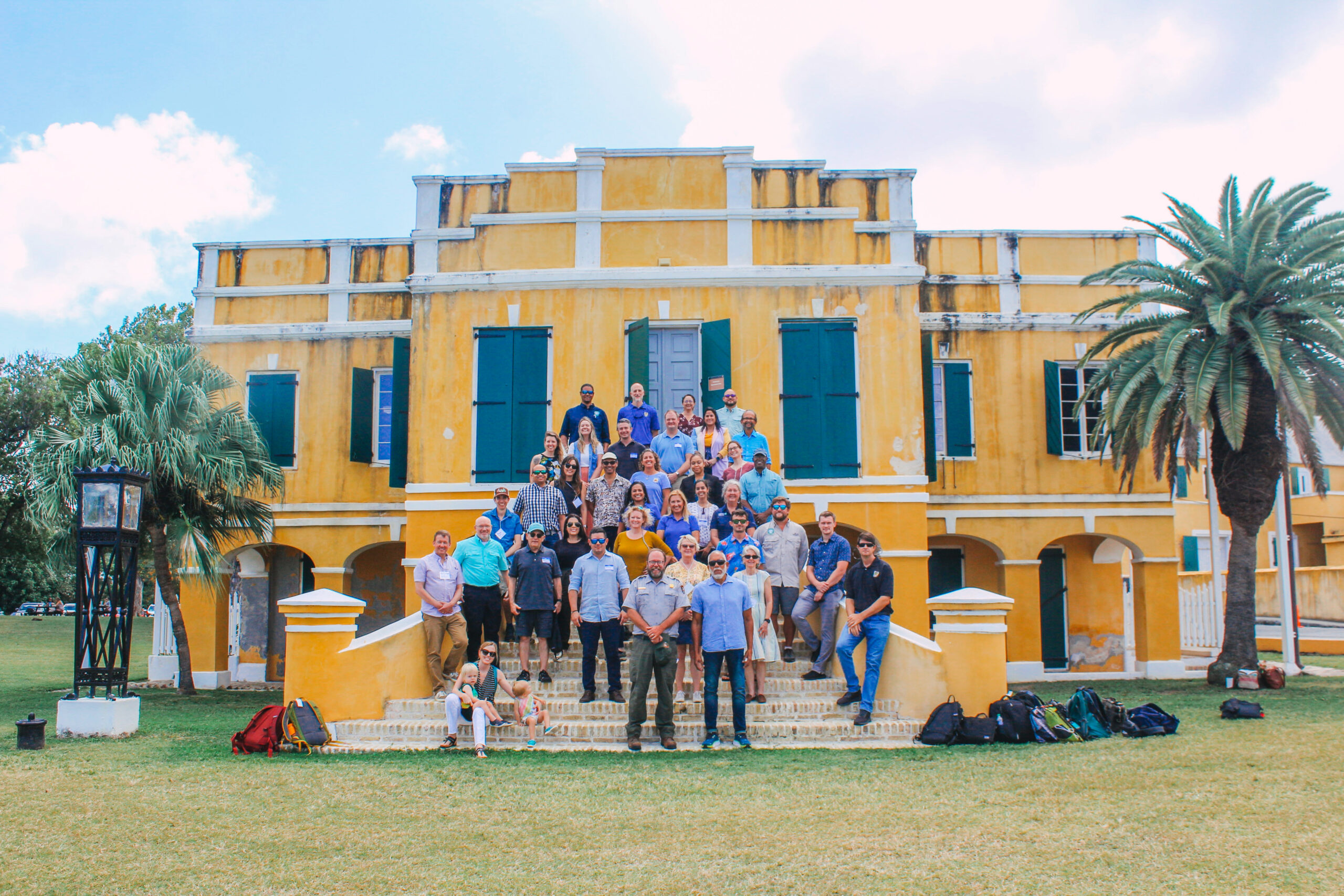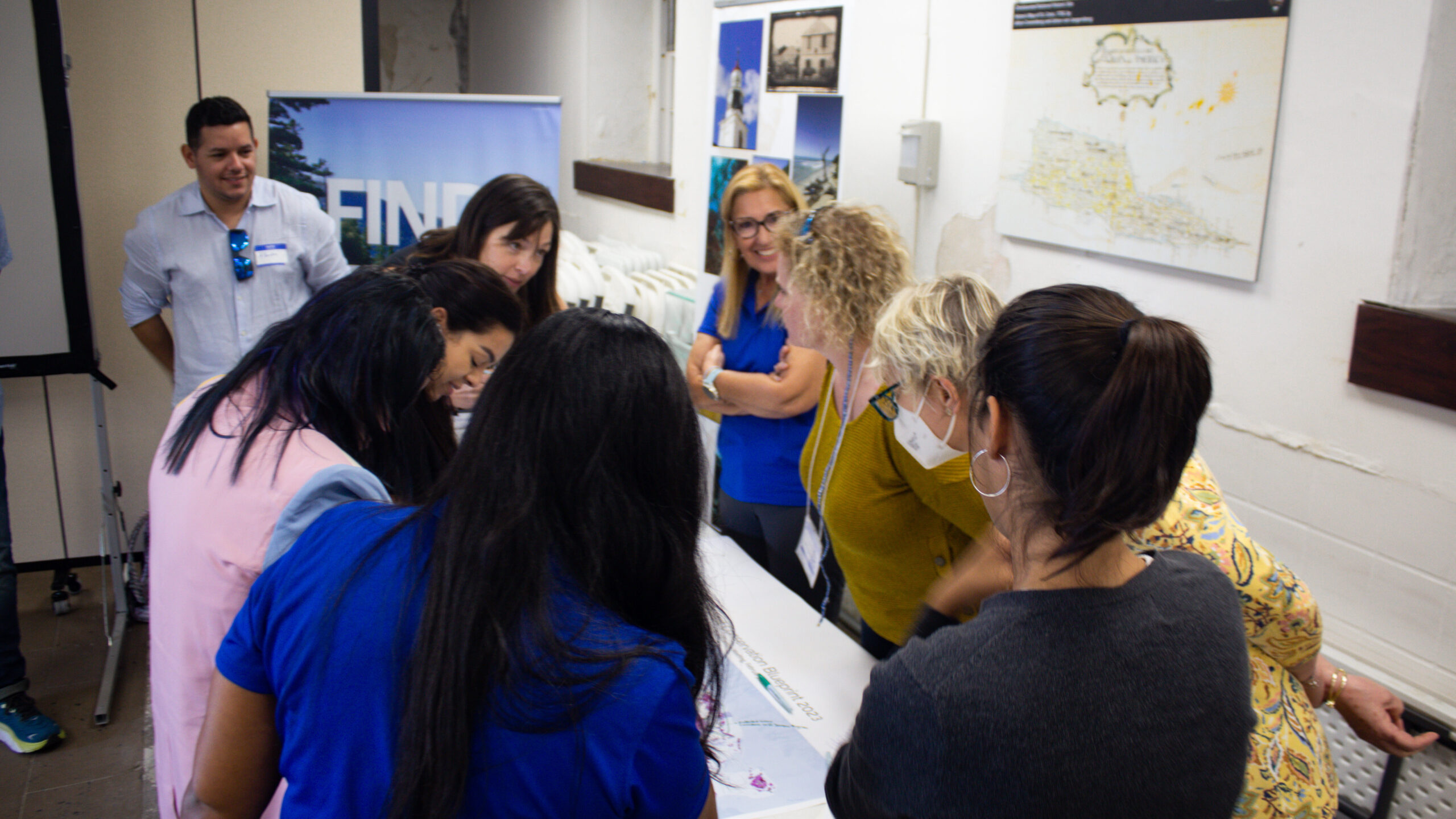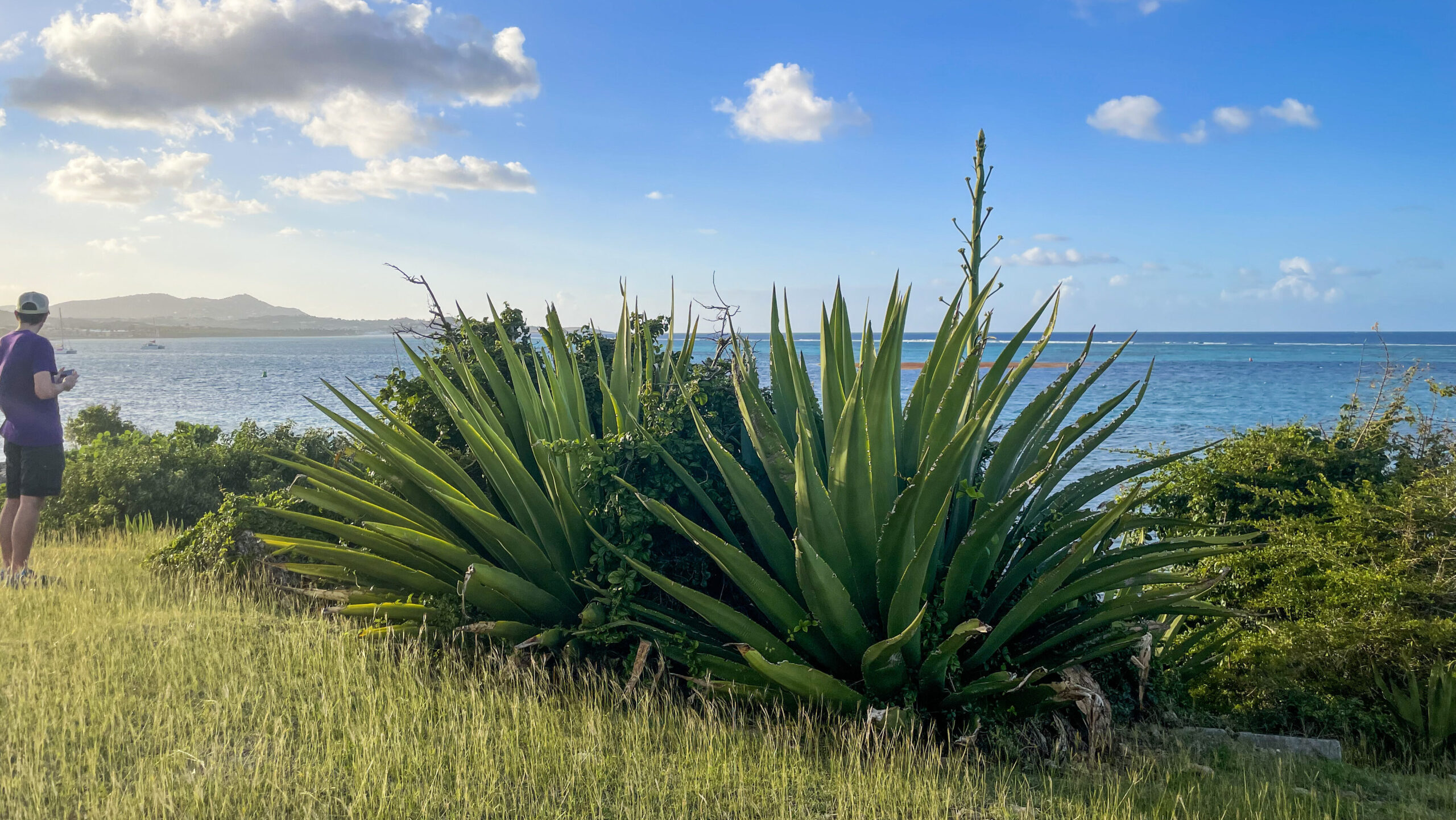Perspectives from the Caribbean Conservation Community of Practice

The following reflection piece was written by SE CASC Climate Science Translation and Communications Fellow Kristen Fontana regarding her experience at the Caribbean Conservation Community of Practice.
It is December 2022, and my mentor Ryan Boyles mentions the potential to assist in an upcoming meeting in St. Croix. That meeting became the Caribbean Conservation Community of Practice and an experience I will never forget.
Having never travelled outside of the continental United States, or “CONUS” for the acronym-loving folks out there, this was sure to be a new adventure for me. Before the meeting, I joined the planning team to assist with managing various organizational aspects of the meeting, such as designing the public agenda, managing attendees, and consolidating informational documents as workshop background. To provide for a successful meeting, I harnessed the creativity, collaboration, and organizational skills I utilized when planning and executing the 2022 Southeast Climate Adaptation Science Symposium in Gulf Shores, AL. As an ORISE Climate Science Translation and Communications Fellow, I also pulled from my communication background when designing and organizing meeting documents for optimal understanding and engagement. With the assistance of my colleagues, I created a Caribbean-focused fact sheet detailing the SE CASC mission and various Caribbean-related projects and workshops for dissemination at the meeting.
With my bags packed with all the necessary meeting materials, I headed to the airport to catch my 6AM flight to Christiansted, St. Croix. Upon landing, my taxi driver assured me of the relaxing and stress-free experience awaiting me on the island as he casually zipped along the winding roads of St. Croix. And so began my journey in the U.S. Virgin Islands.
The Caribbean Community of Practice Meeting spanned two days, from February 9-10, 2023, and was initiated by the Southeast Conservation Adaptation Strategy (SECAS) with support from the Southeast Climate Adaptation Science Center (SE CASC). It was hosted at the historic Guinea Company Warehouse, graciously provided by the National Park Service. Over those two days, conversations and relationship-building led to a working network of conservation practitioners in the U.S. Virgin Islands. On day one of the meeting, participants got to know each other through brief introductions. As I facilitated slide presentations and took photos, I found myself learning a lot – and not just all those tongue-twisting acronyms!
The goal for the Southeast CASC at this meeting was to hear from on-the-ground managers about research gaps/priorities and climate adaptation in the Caribbean. This was achieved through a SE CASC-facilitated breakout group session. As the warm air brushed against my arms and a breeze rolled across the landscape at our outdoor meeting spot, I captured some of the priority research gaps and opportunities discussed for building new partnerships with our Caribbean counterparts. Some barriers and gaps identified include data accessibility, long-term consistent model data, and decision support (i.e., guidance on how to use the science to inform decision-making). Public engagement was noted as a tool for growing partnerships to increase the relevance and accessibility of science. Efforts to communicate science, such as the SE CASC webinar series on the Fourth National Climate Assessment, were deemed useful and received support for future implementation. Using the momentum from this Community of Practice, the SE CASC can pursue efforts to tackle identified gaps, broaden partnerships, and ultimately produce science to inform decision-making.

About forty-five individuals gathered from the continental southeastern United States, Puerto Rico, and the U.S. Virgin Islands, for a common purpose: to strengthen relationships and ultimately build a working community of practice for the Caribbean. Not only was I impressed to see the breadth of knowledge and backgrounds throughout the meeting, but also the large presence of women attending the meeting. As a young woman working in climate communications, the number of young women in climate leadership positions truly was inspiring.
This trip was one of firsts for me: my first time traveling outside of CONUS and my first time assisting and attending a Caribbean Community of Practice. It was also my first time trying authentic Caribbean cuisine, seeing the endangered agave plant, and attending a St. Croix “Jump Up,” where islanders convened in Christiansted for a large celebration filled with music, food, and performances. I had my very first roti and watched a woman make a homemade coconut water and sugar cane beverage. This cultural immersion, combined with participation in robust conversations of science needs, provided me with a personal connection to the Caribbean. St. Croix is no longer just “one of the U.S. Virgin Islands,” but now a region that I have gained knowledge from and also learned how to support.

My experience in St. Croix was informative, eye-opening, and engaging. I am so grateful to the Southeast Conservation Adaptation Strategy and the Southeast CASC for giving me the opportunity to not only assist in a very successful Community of Practice, but also learn of the rich culture that exists beyond the contiguous United States!
- Categories:
